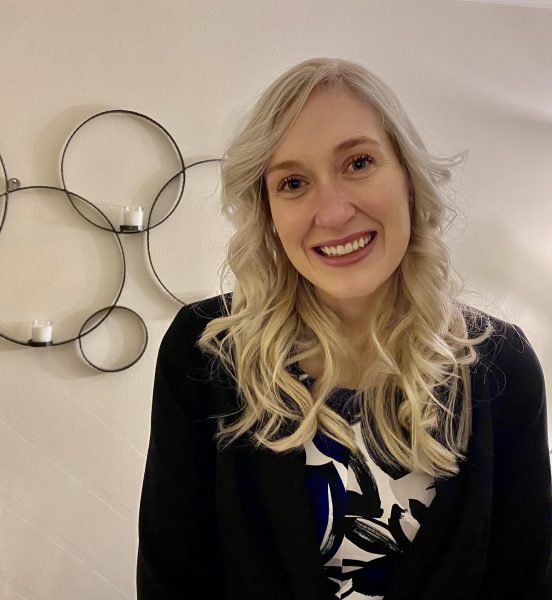By Emilia Wisniewski (COM’25)
 Arché, a Greek term that means “starting point” and the name of Boston University’s student-led journal of philosophy, was launched in 2007 with only eight editorial team members and three pieces in its first issue. With each annual issue came a larger staff and more entries from contributors across the country — until 2012, when Arché published its last issue for over a decade.
Arché, a Greek term that means “starting point” and the name of Boston University’s student-led journal of philosophy, was launched in 2007 with only eight editorial team members and three pieces in its first issue. With each annual issue came a larger staff and more entries from contributors across the country — until 2012, when Arché published its last issue for over a decade.
Vanessa Hanger (CAS’24), a rising senior double majoring in philosophy and psychology, heard about the neglected journal early on in her BU career and worked to garner a team to help Arché come back to life.
“We wanted to revive the journal and highlight exceptional student work and provide a platform for students to share their philosophical writing with a broad readership,” said Hanger, who is now the journal’s Editor-in-Chief. “I realized that we really need to recruit a team. This is a huge amount of work, and it needs to be a collaborative effort with not just students but also faculty. So since then, I’ve been working pretty diligently to get the journal up and running.”
For the past two years, Hanger has worked to form an editorial team of motivated, inquisitive students from diverse academic backgrounds in the College of Arts & Sciences, as well as to promote the journal’s comeback within BU and beyond.
Hanger said that four people showed up to the first meeting and only one of them returned to the next. By the publication date, there was a committed staff of 16.
To solicit journal content, Hanger sent “hundreds of thousands”of emails to program coordinators internationally, which led to contributors of the issue coming from highly-accredited universities and colleges, including Brown University, University of Chicago and Durham University.
She also worked to organize workshops led by a faculty member and PhD students in the Department of Philosophy to teach the Arché team about peer review and editorial practices, skills not often taught in BU classrooms. The workshops have been very helpful for members of the editorial team in their review of submissions, she said.
Hanger was previously the Editor-in-Chief of the Journal of the Core Curriculum and credits much of her learning about editing principles and processes to the Core program. However, she and her team have made numerous innovations of their own in their running of Arché, such as implementing a double-blind review system that has two separate editors go through and score the submission using their ever-changing rubric.
“Scoring rubrics and comments get sent back to every submitter because we really truly believe that giving students feedback on their writing is valuable, and it’s taken a lot to learn how to peer review,” Hanger said.
She acknowledged that the selection process for their most recent issue was arduous as there were many high-quality manuscripts submitted for consideration, resulting in a 7.1 percent acceptance rate.
Sally Sedgwick, department chair of Philosophy, said the journal garnered “high quality” works on topics that range from language and surrealism to language and civil disobedience.
“We are impressed with the professional quality of this recent issue and look forward to further great work on the part of the Arché team,” she said.
With three times as many papers as Arché’s first volume, the Spring 2022 edition went to print on April 26.
One contributor, Juan N. Pava, who is majoring in Philosophy and Economics at New York University, said “Arché’s ability to navigate through the challenges, push the boulder uphill and complete the publication of the papers over an entire year is truly commendable.”
Another contributor, Robin Hillenbrink, a masters student at the University of Utrecht, said the team was professional yet kind throughout the entire editing process.
“Comments were very constructive, and feedback came swiftly,” Hillenbrink said. “Vanessa was always available for questions, and willing to help out and think together with me until the end when I wanted to purchase extra copies.”
Hanger is also a 2023 Karbank Fellow, a fellowship within the philosophy department that allows undergraduate students to have philosophical explorations in a variety of avenues. In her application for the fellowship, Hanger proposed spending the summer strengthening Arché’s longevity by meeting with several editors of top-tier professional journals of philosophy from around the world, two of whom she will meet this month during trips to Lehigh University and Columbia University.
Hanger said that the aspect of her work for Arché that she enjoys most is providing feedback to fellow students on their writing because it provides value to them and their future thinking and work. She also noted that “building ties of friendship” among the members of the editorial team as well as “expanding the team and its impact” are extremely important to her.
“Unlike a lot of other student activities, we have a final end product,” she said. “It’s something tangible, it’s a print journal. We’re all working towards an end goal and it’s really rewarding to be on a team where we’re all working to produce something that we can be proud of and show our friends and family.”